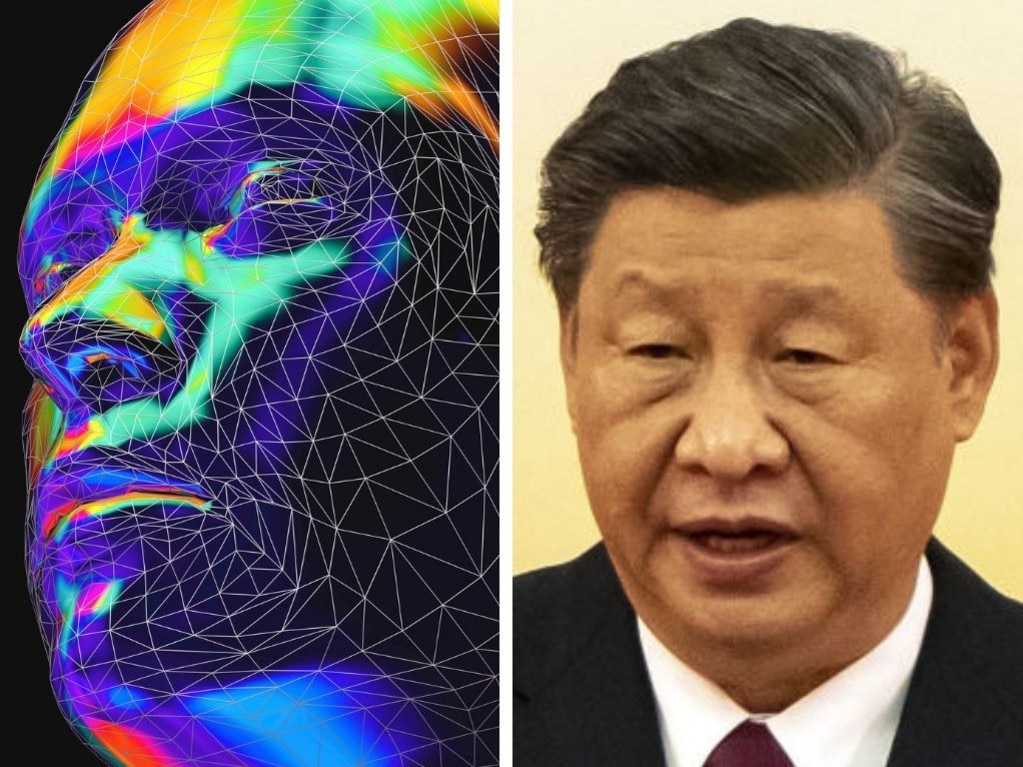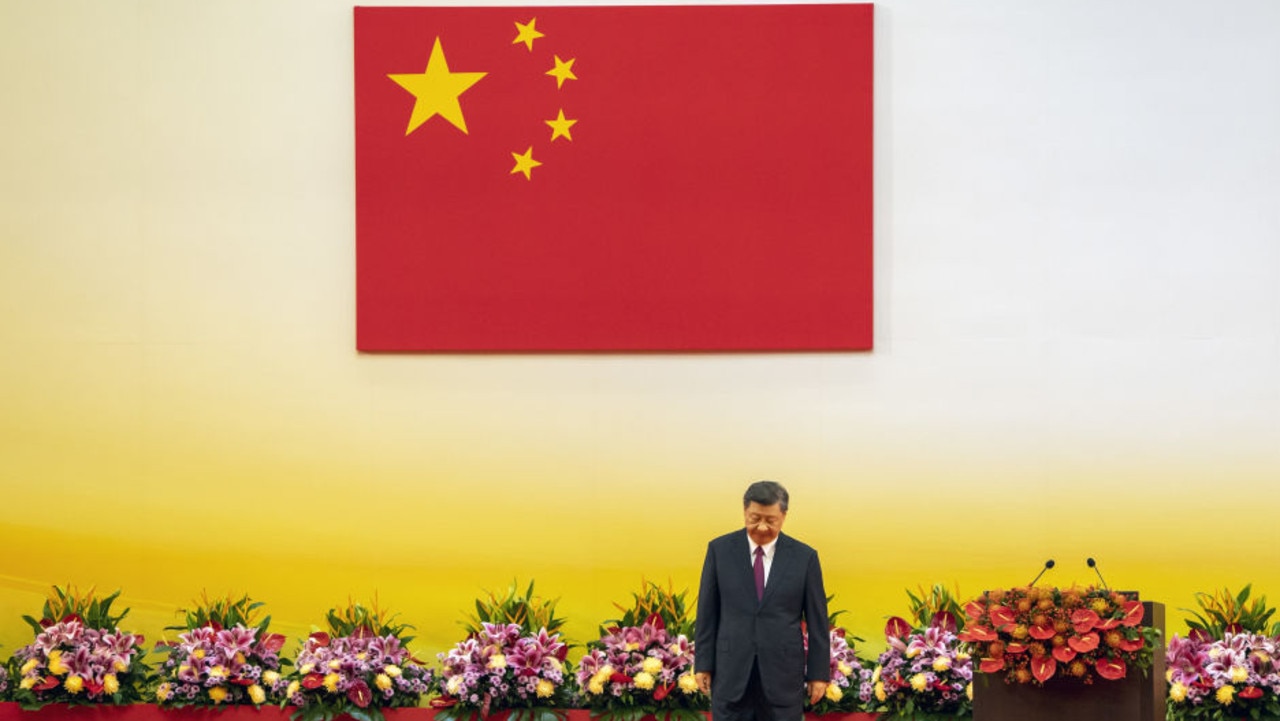A new report has outlined China’s latest step towards becoming the world’s most complex digital dictatorship.

Researchers in China claimed to have developed software that can acutely analyse facial expressions and brain waves to monitor if subjects were attentive to “thought and political education”.
China’s stringent police state has been radically upscaled over the past decade, using big data, machine learning, face recognition technology and artificial intelligence to build what many have labelled the world’s most complex digital dictatorship.
According to the Hefei Comprehensive National Science Centre, the high-tech development would be used to “further solidify their confidence and determination to be grateful to the party, listen to the party and follow the party”.
In a short clip, a subject was seen looking at screen at a kiosk, scrolling through exercises promoting party policy. According to researchers, the technology in the kiosk was able to note the researcher’s expressions and pinpoint their reaction to particular pieces of content.
The institute said it has encouraged 43 party members on the research team to take party lessons while being monitored by the new software.
The video report was published on July 1 but has since vanished.
“On one hand, it can judge how party members have accepted thought and political education,” the article said. “On the other hand, it will provide real data for thought and political education so it can be improved and enriched.”
President Xi, secretary of the Communist Party and leader of the nation of 1.4 billion, has demanded absolute loyalty to the party it and has previously declared “thought and political education” is an essential part of the government’s doctrine.
Chinese state-backed publication Study Times was reporting about the development of similar aritficial intelligence back in 2019, claiming algorithms could be used to “gauge the thought condition of party members” and make sure content can “go into the head and the heart of party members”.
“It will truly enhance a party member’s political quality and ideological thought,” the publication wrote at the time.
The development is but another in Xi Jinping’s relentless pursuit towards a technological dystopia for the word’s largest nation.
In certain areas of China, it is now commonplace to have a score tracked by a digital social credit system. Those who are deemed untrustworthy to the government risk losing basic privileges like purchasing an airfare.
A low social credit score will also exclude you from well-paid jobs, make it impossible for you to get a house or a car loan or even book a hotel room. The government will slow down your internet connection, ban your children from attending private schools and even post your profile on a public blacklist for all to see.
The Government has even produced a “deadbeat map” via an app on WeChat, which shows a radar-style graphic identifying every laolai in the vicinity of the user.
“Tapping on a person marked on the map reveals their personal information, including their full name, court-case number and the reason they have been labelled untrustworthy. Identity-card numbers and home addresses are also partially shown,” according to media reports.
There are also reports citizens whose social credit score falls too low are pre-emptively arrested and sent to re-education camps, not because they have committed a crime but because they are “likely to”.

Citizens can also earn points to show their faith by reporting the crimes of who violate the new restrictions. Christians who illegally meet to pray in private homes, or Muslim Uyghurs spotted gathering may be subject to a new form of tattle-tailing that not only lands them in strife, but benefits the “good Samaritan” who outed them to authorities.
Western pushback to the social credit system has been especially fierce. In 2018, former US Vice-President Mike Pence claimed “China’s rulers aim to implement an Orwellian system premised on controlling virtually every facet of human life” and
According to Horizons, the implementation of the system for corporations, known as the ‘corporate social credit rating’ is “especially advanced”.
“More than 33 million businesses in China have already been given a score under some version of the corporate social credit system,” a report outlining the consequences of a low credit score read.
In recent weeks, China has reportedly aimed at standardising a rewards system to motivate the public to report crimes and boost their score.
According to the Legal Daily, Chinese citizens could get “spiritual rewards”, in the form of certificates of appreciation or up to 100,000 yuan (A$21,726), depending on the usefulness of their information..
“The formulation of the measures is conducive to fully mobilising the enthusiasm of the general public to support and assist in national security work, widely rallying the hearts, morale, wisdom and strength of the people,” a representative from the China’s ministry of state security said in June.
The ministry has also encouraged regular citizens to remain vigilant about the threat of “foreign intelligence agencies”.
“foreign intelligence agencies and all kinds of hostile forces have visibly intensified their infiltration activities in China,” the ministry said, warning outside influences “pose a severe threat to national security”.
